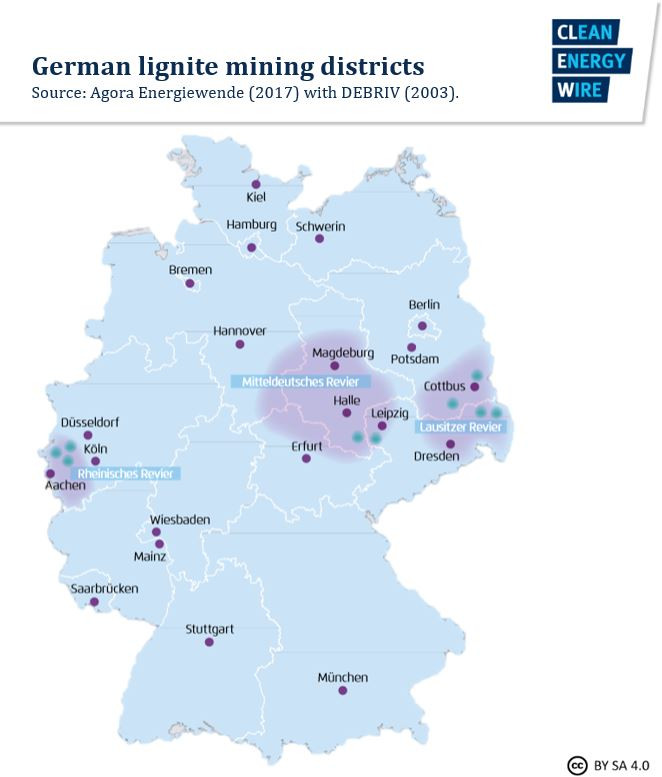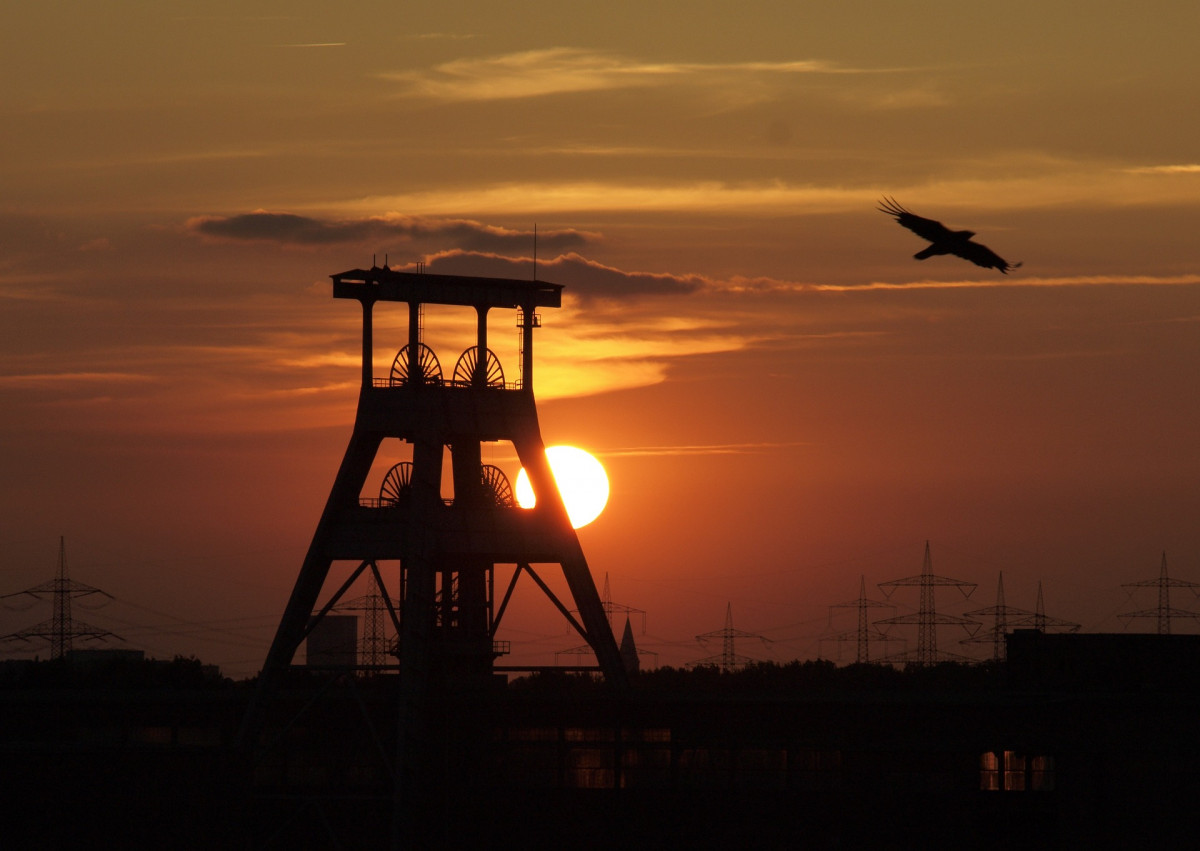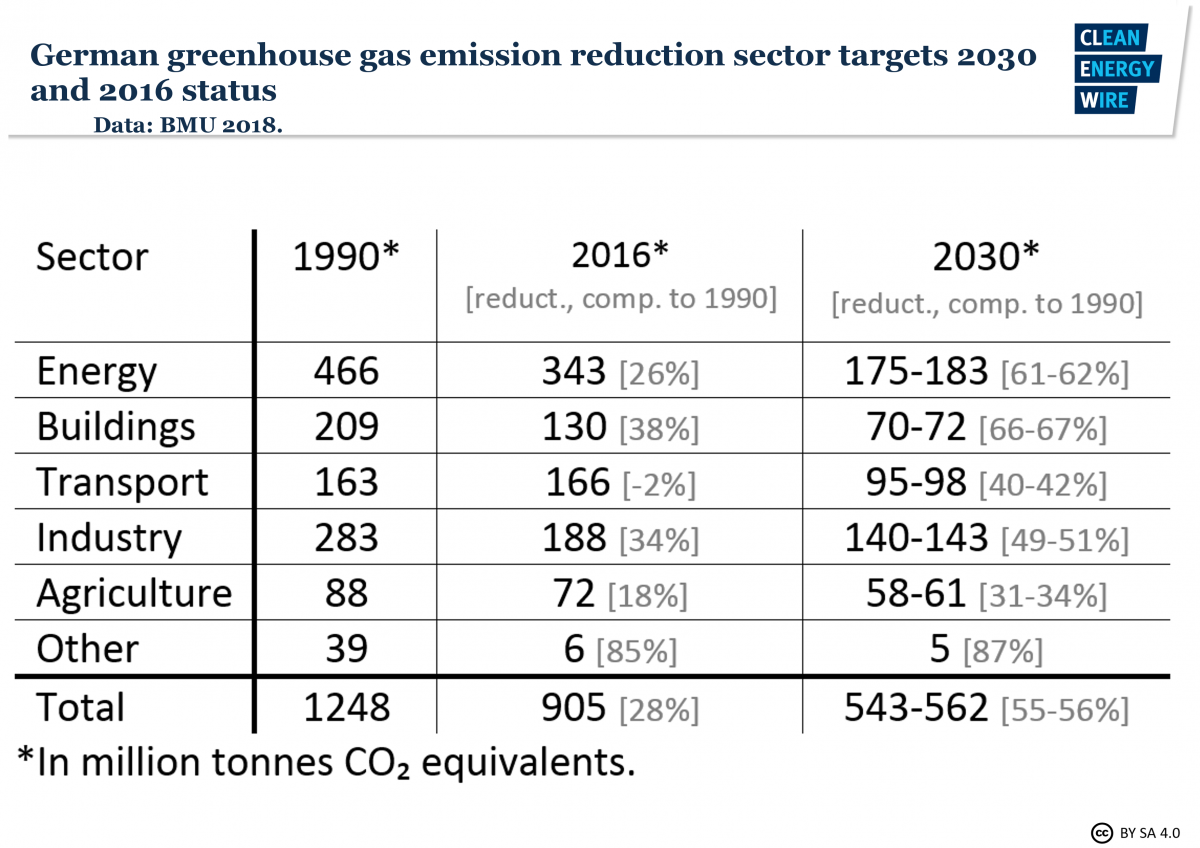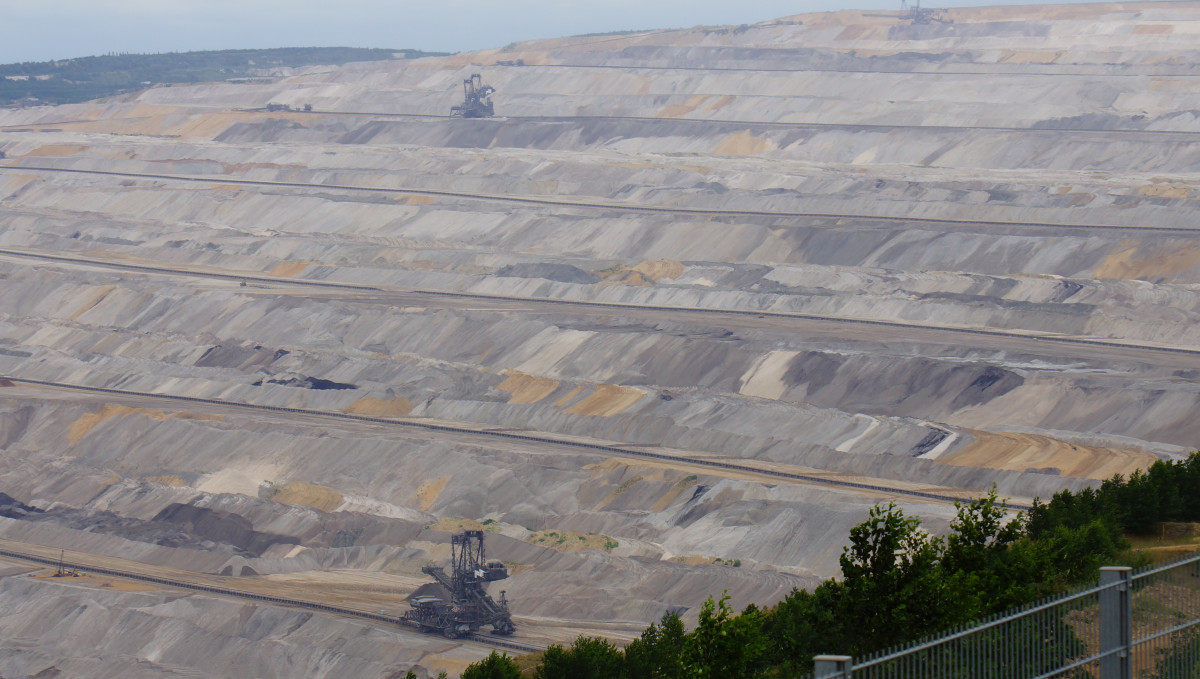Europe's largest economy exits coal to reach climate goals
Experts
- Agora Energiewende
- BDEW-German Association of Energy and Water Industries
- Federal Institute for Geosciences and Natural Resources (BGR)
- BMU - Federal Ministry for the Environment, Nature Conservation and Nuclear Safety (until 2025)
- BMWi - Federal Ministry for Economic Affairs and Energy (until 2021)
- DEBRIV - Federal German Association for Brown Coal
- EPH - Energetický a průmyslový holding
German government implements the coal exit proposal
Factsheet: Spelling out the coal exit - Germany’s phase-out plan
Germany has passed legislation to end coal-fired power generation by 2038 at the latest and agreed on a shutdown schedule for individual lignite power plants as well as compensation payments for operators. For hard coal, meanwhile, the coal exit law foresees auctions for plant operators to take capacity off the grid according to the government's timetable. This factsheet explains how Germany plans to phase out coal.
Article: Bumpy conclusion of Germany's landmark coal act clears way to next energy transition chapters
In a vote hailed as "historic", Germany's parliament adopted the law that will ensure the phase-out of coal power by no later than 2038. The decision follows two years of intense debate about the country's climate action ambition and the changes needed to meet them aimed at reconciling interests in a broad compromise but that ended in discord. While the law indeed marks a crucial step in the German Energiewende, it failed to garner widespread support and has instead drawn heavy criticism for falling short of climate targets and granting coal companies too much compensation. The law's passing nevertheless opens the door to the energy transition's next crucial challenges that also look set to influence 2021 election campaigns – managing the costs of decarbonisation and boosting renewables.
Aricle: Germany irons out last coal exit law hurdles with conversion options for younger plants
Germany's government has removed the last hurdles to finalising the country's much-anticipated coal exit law, clearing the way for a passage of the bill in parliament at the end of the week. The draft agreement grants operators of relatively new hard coal plants more compensation but also increases incentives for operators to shut down early or convert their installations into plants that run with hydrogen, biomass or natural gas. The proposed law has been criticised for failing to honour the compromise found by Germany's coal exit commission last year and for dealing out too much money as a compensation to lignite companies. Reseachers suggest that keeping coal plants running could become uneconomical much quicker than the proposed 2038 end date.
Article: Germany takes next coal exit step with contract for company compensation
Germany is one step closer to finalising legislation on the planned coal exit by 2038 at the latest, as the government approved a draft contract between the state and companies to flesh out the country’s farewell to lignite. Among other things, the draft lays out details on how the announced 4.35 billion euros in compensation will be paid to lignite operators and stipulates its use to restore the landscape after mining has finished. Environmentalists noted with relief that the contract in its current form would not prevent an earlier exit from coal should market conditions turn coal plants uneconomical.
Article: Experts criticise proposed German coal exit law for deviating from commission compromise
Experts have criticised the German government's draft coal exit law for deviating from the compromise found by the coal commission in early 2019. At a parliamentary committee hearing, representatives from industry, research institutions and civil society said the draft is no longer fully in line with last year's agreement. NGOs and researchers said changing market conditions mean that the text effectively prolongs the use of coal in Germany beyond what would otherwise be economically viable thanks to compensation payments. Industry representatives said the proposal did not provide binding compensation mechanisms for rising power prices to shield companies in international competition from rising electricity costs due to the phase-out.
Article: Government, mining states, utilities fix path for Germany's coal phase-out
The German government, its coal mining states and several major utilities have agreed on a roadmap for shutting down the country's lignite-fired power plants and on compensation payments for operators. Many analysts and environmental activists immediately dismissed the phase-out schedule agreed on almost one year after the country's landmark decision to end coal by 2038, arguing that the pace was too slow to comply with Germany's emissions reduction obligations. Former coal commission members say the German government breached the landmark exit compromise from 2019.
Factsheet: Implementing Germany’s coal exit proposal
Germany's coal exit commission has agreed on a proposal on how the country can manage to phase out its single largest source of greenhouse gas emissions by 2038, and the ensuing political decision-making process is in full swing. Chancellor Angela Merkel's government coalition has to decide how to implement the non-binding proposal and has drafted necessary legislation. The laws will ultimately be decided by parliamentarians in a process that could last well into 2020. In this factsheet, Clean Energy Wire lays out the basics of the ongoing political process to translate the German coal exit into action.
The coal commission proposal
Energy transition home country Germany eyes a phase-out of coal power by 2038 at the very latest, as the country tries to get back on track to create a climate-friendly economy. In its highly anticipated phase-out proposal, the country’s coal commission said the world’s fourth largest economy could also wean itself off coal by 2035 if conditions are right. The deal, which was sealed after a 20-hour negotiation session, was welcomed by most NGOs, researchers, and business associations. But climate activists said the pace of the exit was too slow and therefore violated international climate targets. Germany’s government has signalled a swift process to assess the coal exit commission’s proposal and start the law-making process.
Article: Germany eyes coal exit by 2038 in bid for climate-friendly economy
The coal exit commission agrees its highly anticipated phase-out proposal on 26 January after a 20-hour negotiation session. It recommends to phase out coal power by 2038 at the very latest. Read the full story.
Factsheet: German commission proposes coal exit by 2038
The final report of Germany's coal exit commission sets out a pathway for the country to phase out the fossil power source and make progress on its slow emissions reductions. Clean Energy Wire summarises key proposals in this factsheet.
Article: German government stands ready to move on coal exit proposal
The German government is ready to quickly supply financial means for the country’s exit from coal. It will now examine the details of the proposal agreed by the coal commission in order to set the law-making process in motion. Read the full story.
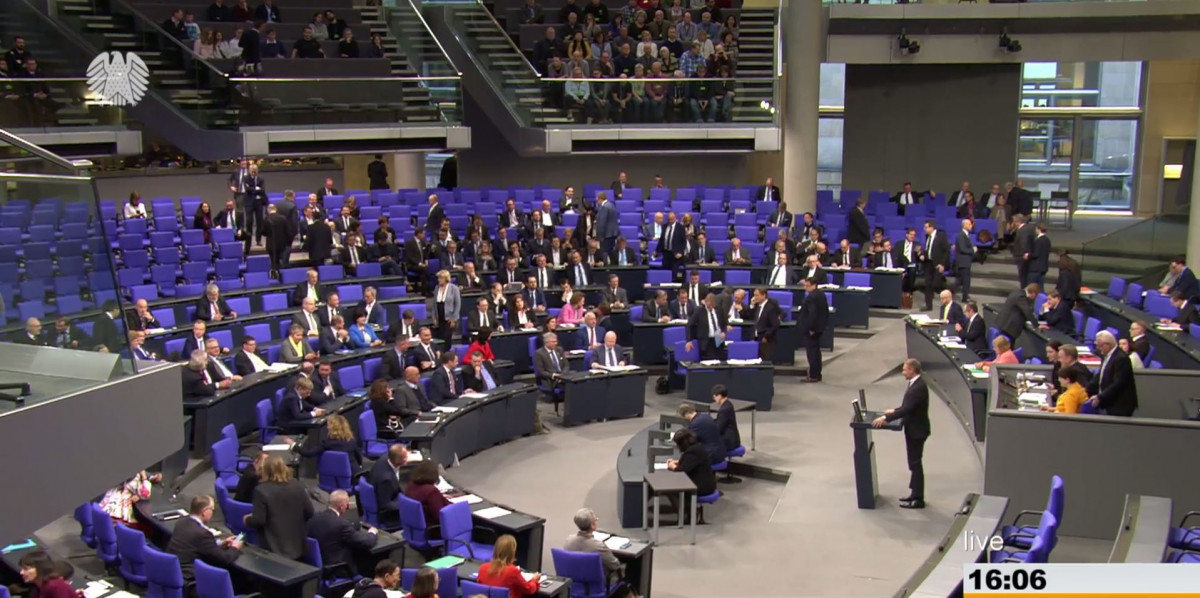
Article: Relief about German coal exit deal fades as focus turns to implementation challenges
The initial relief in Germany over a coal exit deal has given way to fresh discussions over how to implement the hard-won compromise. In a first Bundestag debate on the proposal, parliamentarians made clear they will have the last word on all coal exit law-making. Read the full story.
Coal in Germany
Power generation from coal has long served German industry, and despite Germany’s reputation as an ecological role model, the cheap, carbon-intensive fossil fuel is still an important pillar of the country’s power supply. In 2018, 22.5 percent of electricity was generated from lignite, 12.8 percent from hard coal. The country shut its last hard coal mine in 2018, but it is still the biggest producer of lignite in the world. Germany has three active lignite mining regions, where many jobs and livelihoods depend on the fossil fuel. To date, opencast lignite mining has altered 179,490 hectares of countryside in Germany. Since 1924, 313 settlements have been lost to lignite mines in the country.
Factsheet: Coal in Germany
Germany is still the biggest producer of brown coal in the world but shut its last hard coal mines in 2018. This CLEW factsheet compiles background information on the lignite and hard coal industry in German.
Factsheet: Germany's three lignite mining regions
This CLEW factsheet gives an overview of Germany's three active lignite mining regions, their history, and economic dependence on coal.
Article: Germany bids farewell to domestic hard coal mining
On 21 December 2018 the mining of hard coal officially came to an end in Germany. The closing of the last mine in the Ruhr region marks the end of 200 years of mining the fossil fuel that made Germany’s industrialisation possible. Read the full story.
The long road to Germany's coal exit
The German government has long shied away from ringing in the end to coal-fired power generation. In 2016, Germany’s Climate Action Plan 2050 – which details how the country is to become close to carbon-neutral by mid-century – failed to set a deadline, but said climate targets could only be reached if coal-fired power generation is reduced step-by-step. It also proposed launching a commission to manage the phase-out of coal by reaching a broad consensus.
In their 2018 coalition treaty, Angela Merkel’s conservative CDU/CSU alliance and the Social Democratic Party (SPD) decided to put the Climate Action Plan proposal into action and launch the “Commission on Growth, Structural Change and Employment”, which quickly became known as simply the coal exit commission. Over several months, commission members held discussions in closed-door meetings. Clean Energy Wire followed the process and summarised key developments in the Commission Watch.
Factsheet: Germany's Climate Action Plan 2050
Germany’s basic framework for largely decarbonising its economy to reach 2050 climate goals includes target corridors for reducing greenhouse gas emissions in individual economic sectors and emphasises the need to ensure economic competitiveness throughout the transition. CLEW’s factsheet gives an overview of the agreed plan.
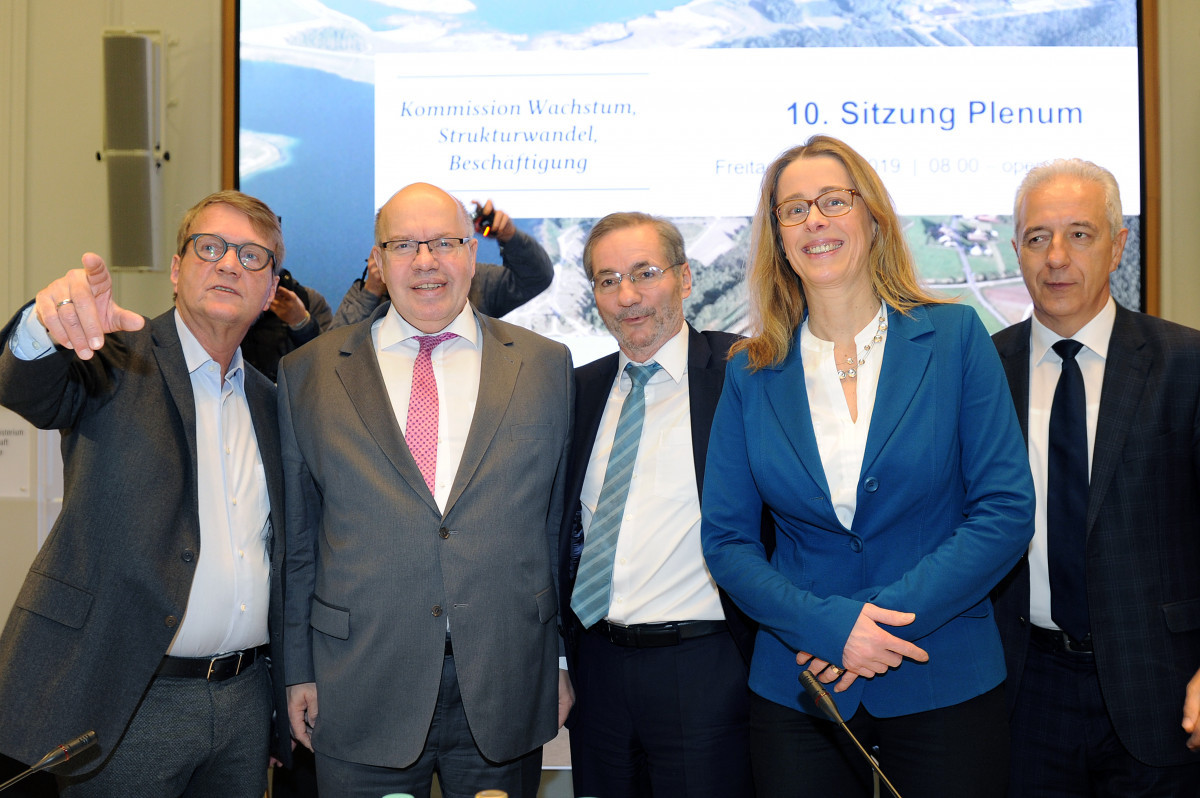
Factsheet: Germany's coal exit commission
The coal exit commission is supposed to find economic perspectives for coal workers and regions, spell out measures to reduce carbon emissions in line with Germany's climate targets, and name an end date for coal-fired power production. The CLEW factsheet explains the details.
Article: Commission watch - Managing Germany's coal phase-out
CLEW’s commission watch traced the progress and public perception of Germany's coal exit commission from the day it was launched to the publication of its final report.
Factsheet: Climate, energy and transport in Germany's coalition treaty
Concluding weeks of intensive negotiations, Germany's government partners agreed on a coalition treaty in early 2018. In this factsheet, the Clean Energy Wire presents excerpts on climate, energy and transport from the agreement between Chancellor Angela Merkel's conservatives (CDU/CSU) and the Social Democrats (SPD).

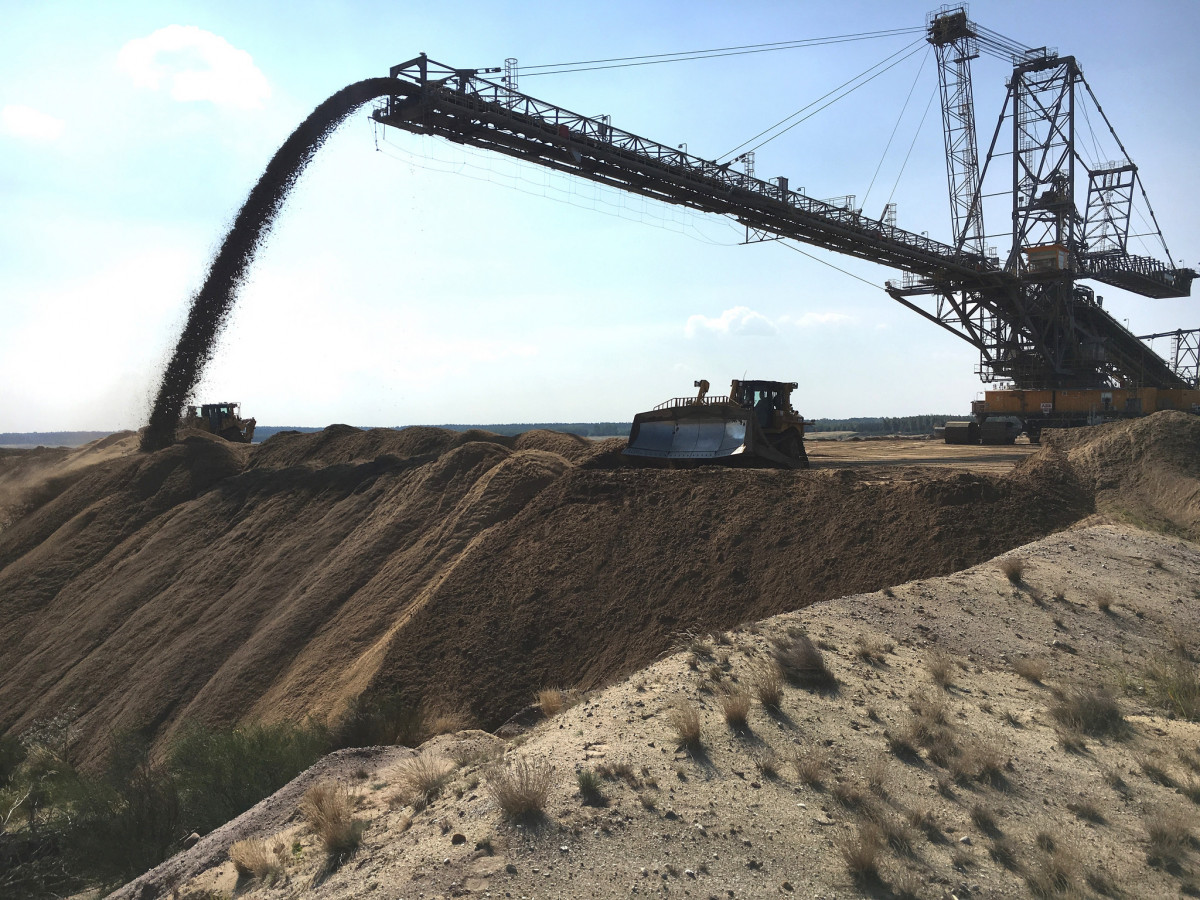
![Coal is still an important pillar of Germany's power supply. Photo: [Kovalenko Inna] - Fotolia.](https://www.cleanenergywire.org/sites/default/files/styles/paragraph_text_image/public/paragraphs/images/fotolia-71863272-l-c-kovalenko-inna-fotoliacom.jpg?itok=3HRDtVY6)
